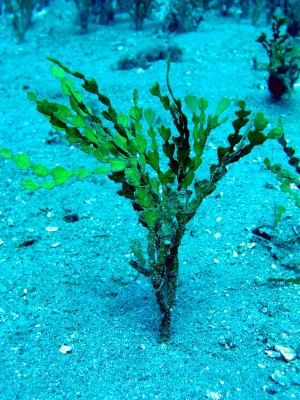Carbonate Organisms dataset information page
Short Description
| Placeholder image for Carbo* OKB |
Statement: Organism Knowledge Base supporting Carbonate Models
Abstract: Page in construction 20 Aug 2013 ---------
Carbonate sediments and rocks are mostly formed through biological activities: reproduction, growth, calcification, mortality and reworking. Most features, scales and rates of these processes are biologically mediated, though physical-chemical factors also play a role: the geography, oceanography, substrates.
The biological factors at work are, at first sight, horrendously complicated. The Organism Knowledge Base (OKB) gives a way of managing the biological information diversity so that process modeling of carbonates becomes possible. We call the simplification result our "Numerical Aquarium" - a few of the most important, most representative, best documented species are put into it and then used by the models. The organism details include reproduction, growth, dimensions and shapes live and post-mortem, environment and event sensitivities, dependencies.
The OKB is used by the carbo* model suite (see 'http://csdms.colorado.edu/mediawiki/images/CSDMS2011_poster_ChrisJenkins.pdf'). Carbo* combines the biological and physical-chemical factors to simulate the initiation, growth and fate of carbonate buildups of many types - coral reef, deep-water coral, bryozoan, Halimeda, algal pavement.
The carbo* group - based in the Carbonate FRG of the CDSMS - is posting the OKB to foster community science advancement. We hope to attract comment including critical review, but also to make the work available for other modeling efforts. Lastly, where the OKB becomes useful we hope that others will add more organisms and more data so it can model carbonate environments and buildups more comprehensively.
The OKB consists of: (i) an EXCEL sheet which suits manual data entry and documentation by humans; (ii) a text export of that sheet; (iii) Python 2.7 software to perform QAQC checking and to transfer the data to a format more suited for machines, (iii) data in that machine-suitable format.
For further information contact: "Burgess, Peter" <Peter.Burgess@rhul.ac.uk>,
"Donald Potts: <potts@biology.ucsc.edu>, "Chris Jenkins" <chris.jenkins@colorado.edu>.
Page in construction 20 Aug 2013 ---------
Data format
| Data type: | Life Forms"Life Forms" is not in the list (Climate, Cryosphere, Human dimensions, Hydrography, Land Cover, Oceanography, River discharge, Surface properties, Sea level, Substrates, ...) of allowed values for the "Data type" property. |
| Data origin: | Measured |
| Data format: | |
| Other format: | |
| Data resolution: | NA |
| Datum: | NA |
Data Coverage
Spatial data coverage: NA
Temporal data coverage: Time series
Time period covered: NA
Availability
Download data: http://csdms.colorado.edu/mediawiki/images/CSDMS2011 poster ChrisJenkins.pdf
Data source: http://csdms.colorado.edu/mediawiki/images/CSDMS2011 poster ChrisJenkins.pdf

